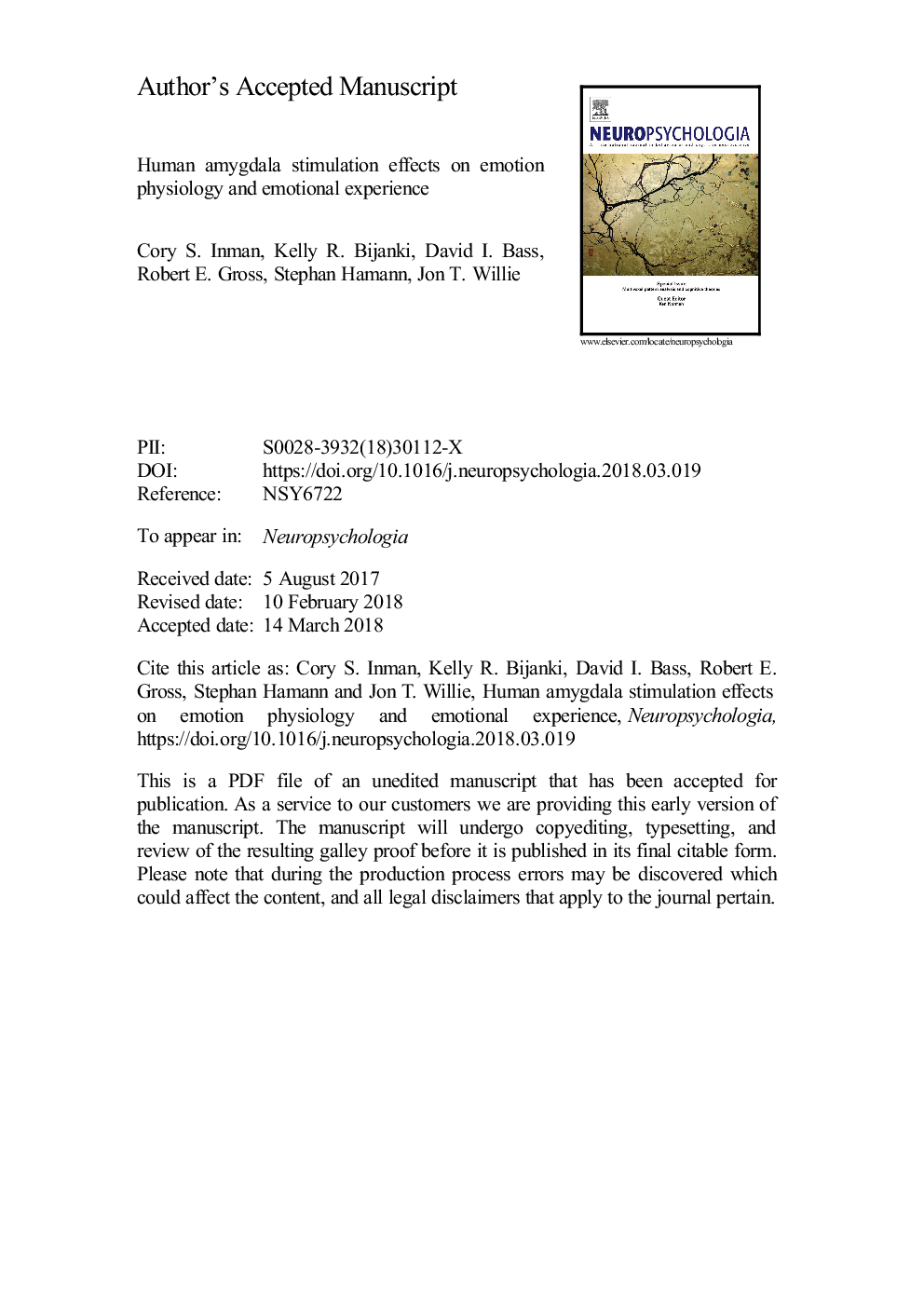ترجمه فارسی عنوان مقاله
تاثیر تحریک آمیگدال انسان بر فیزیولوژی احساسات و تجربیات عاطفی
عنوان انگلیسی
Human amygdala stimulation effects on emotion physiology and emotional experience
| کد مقاله | سال انتشار | تعداد صفحات مقاله انگلیسی |
|---|---|---|
| 155579 | 2018 | 52 صفحه PDF |
منبع

Publisher : Elsevier - Science Direct (الزویر - ساینس دایرکت)
Journal : Neuropsychologia, Available online 15 March 2018
ترجمه کلمات کلیدی
آمیگدالا، تحریک مغزی، واکنش خودمختاری، روانپزشکی، فعالیت الکترودرمی، ضربان قلب، تجربه احساسی،
کلمات کلیدی انگلیسی
Amygdala; Brain stimulation; Autonomic reactivity; Psychophysiology; Electrodermal activity; Heart rate; Emotional experience;

